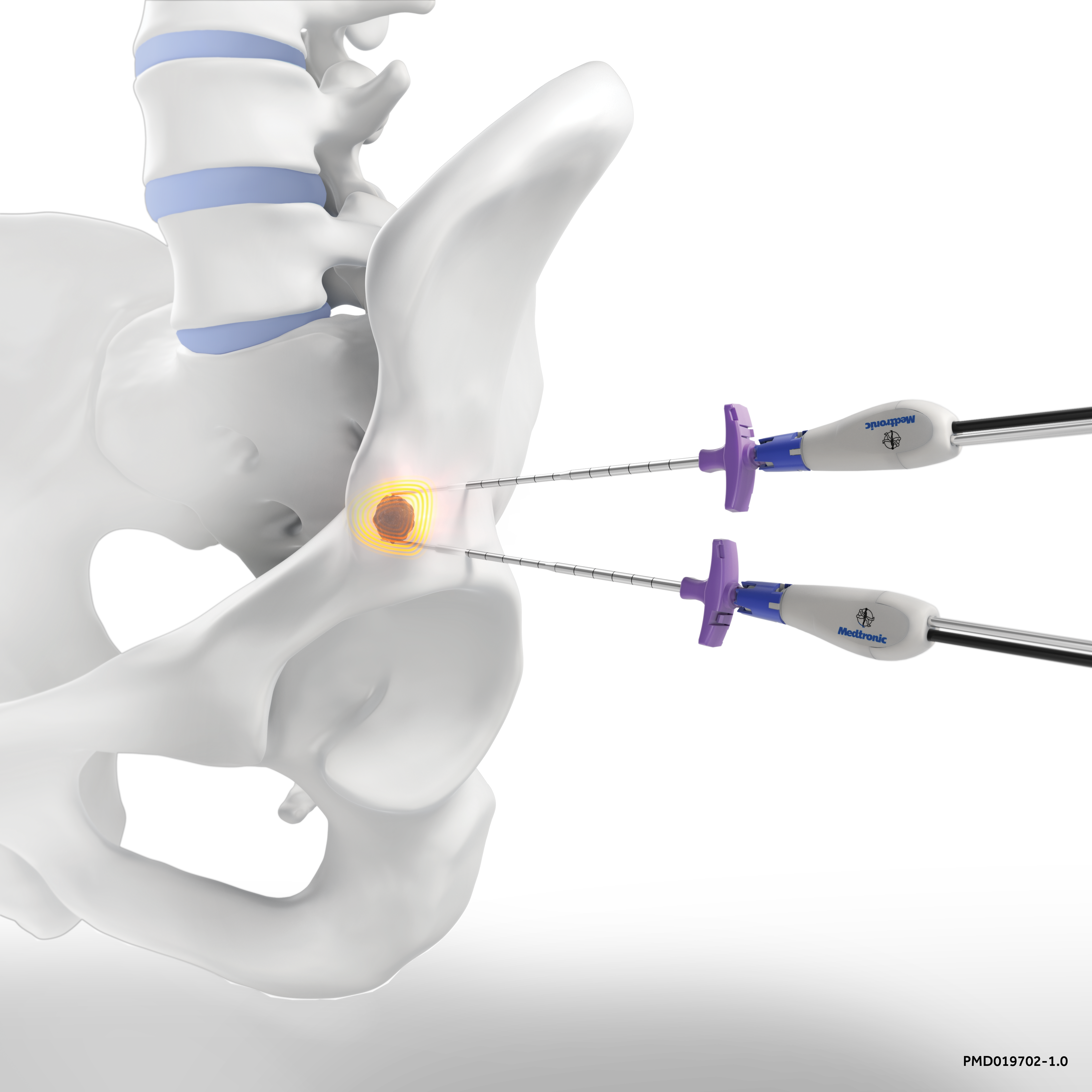Radiofrequency Ablation
What is Radiofrequency Ablation?
The treatment involves the use of radiofrequency energy to generate heat. This heat reaches the precise temperature necessary to damage nerve endings in the target area but causes no harm to the surrounding tissues.

What conditions are treatable with radio frequency?
- Neck or lower back arthritis
- Cervicogenic headaches
- SI joint pain
Other chronic pain conditions that this radiofrequency can treat include arthritis in large joints like your hips, shoulders and knees occipital neuralgia (nerve-related head pain).
What does radiofrequency ablation involve?
You need a sedative to make sure you stay relaxed and calm throughout the procedure, which may come in the form of oral sedation or through an intravenous (IV) line in your arm. You also receive an injection of a local anesthetic in the treatment area so you won’t feel any discomfort.
Next, your provider inserts a fine needle into the tissues, using moving X-ray technology known as fluoroscopy that enables them to see where the needle’s going. When the needle is in position, your provider inserts a tiny electrode.
At this point, you should feel a tingling sensation, which shows the electrode is situated correctly. Your provider can now deliver the radiofrequency energy into the electrode, which heats your nerve endings.
What happends after my radiofrequency ablation?
Radiofrequency ablation treatment tends to start taking effect after a week or two, but can take up to 6 weeks for maximal relief. The results are variable, so some patients may experience only a little relief, while others notice a significant improvement.
The effects of this treatment last an average of 6-12 months, but you could benefit for far longer. Some people continue to appreciate a reduction in their pain for years after radiofrequency ablation. The procedure is also repeatable when pain returns.
To determine whether radiofrequency ablation could reduce your chronic pain, call Pacific Sports & Spine today.
